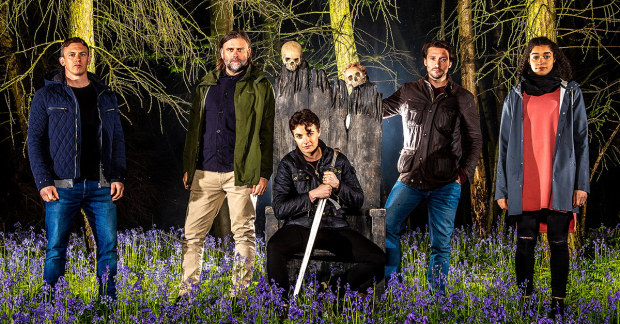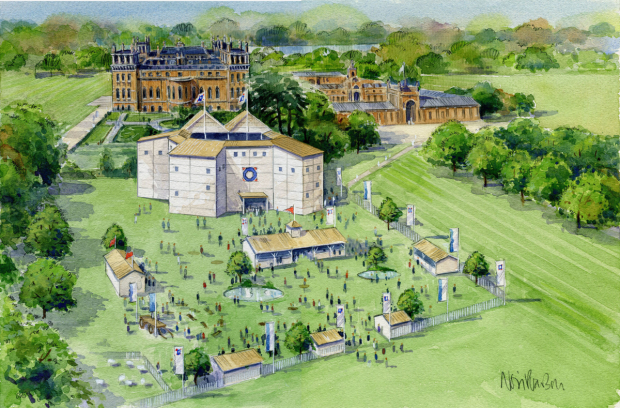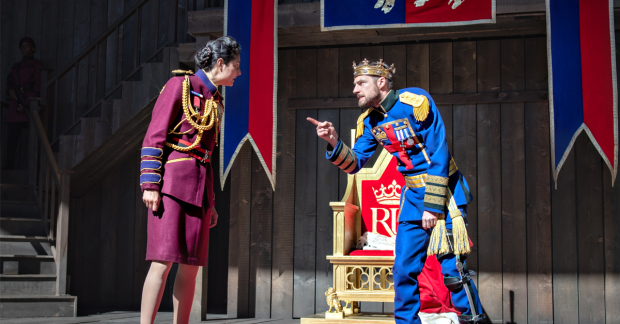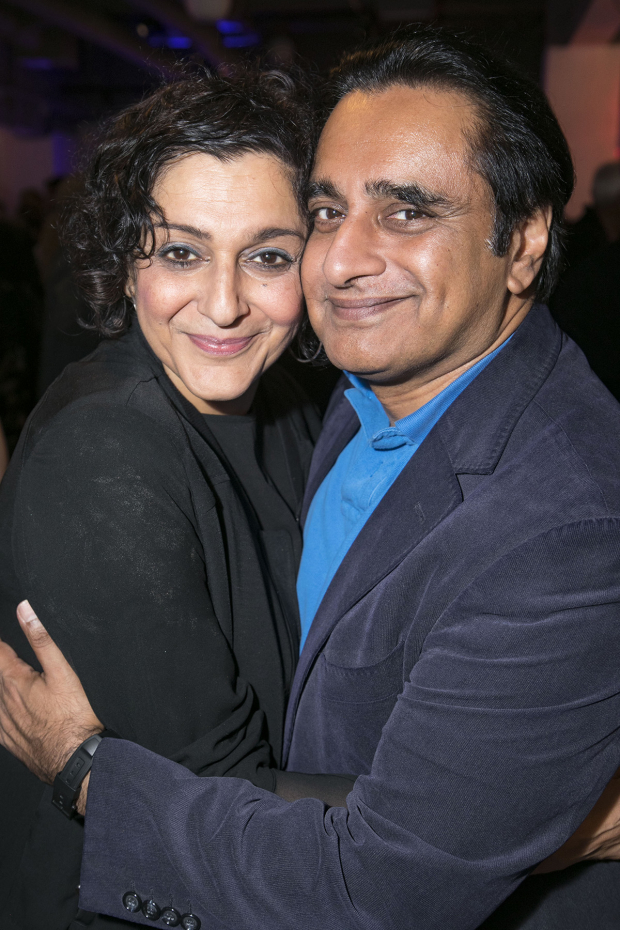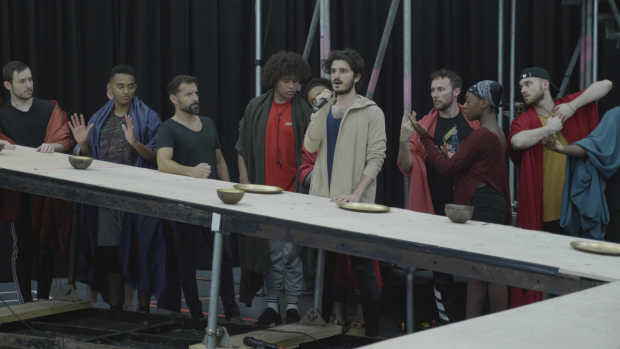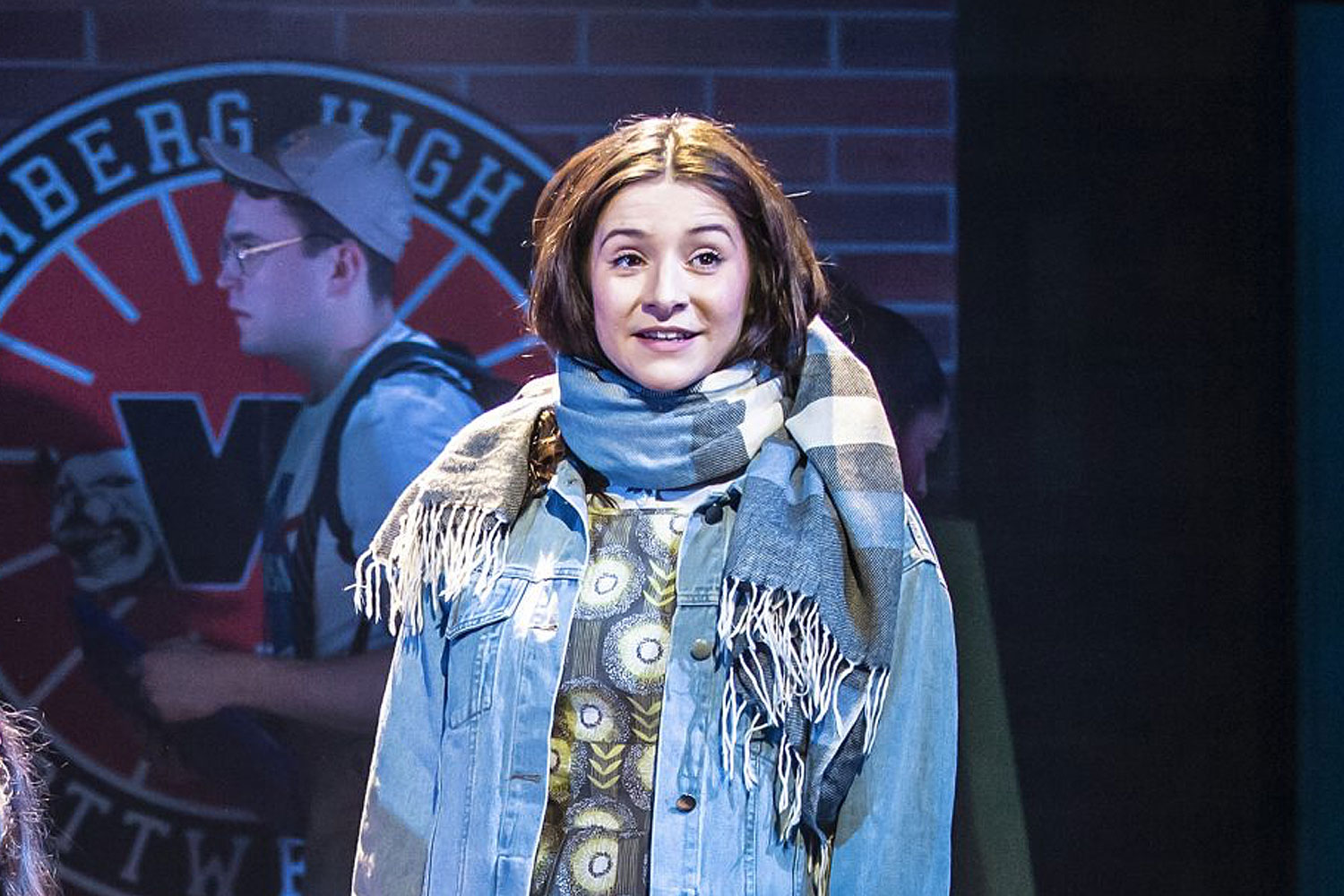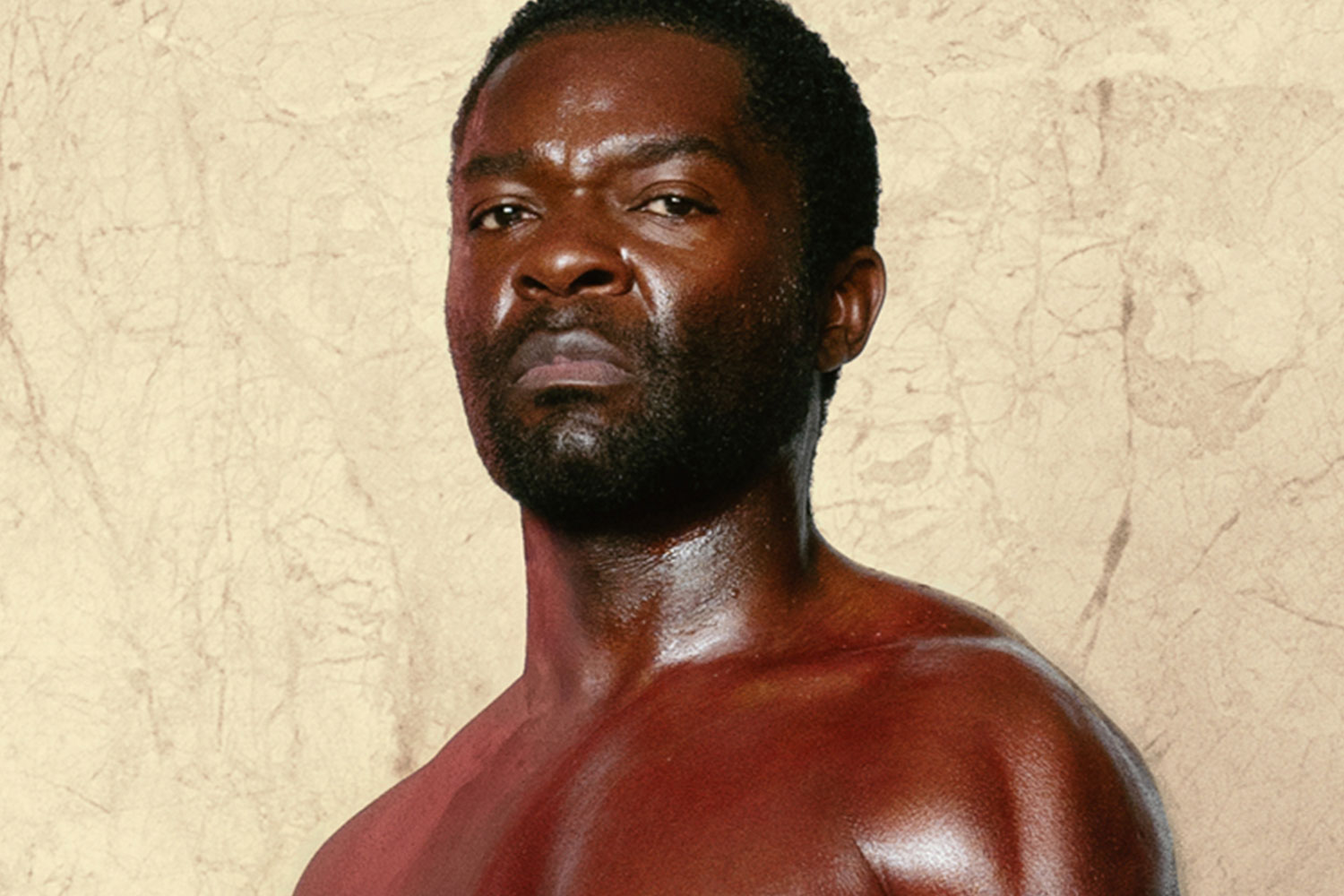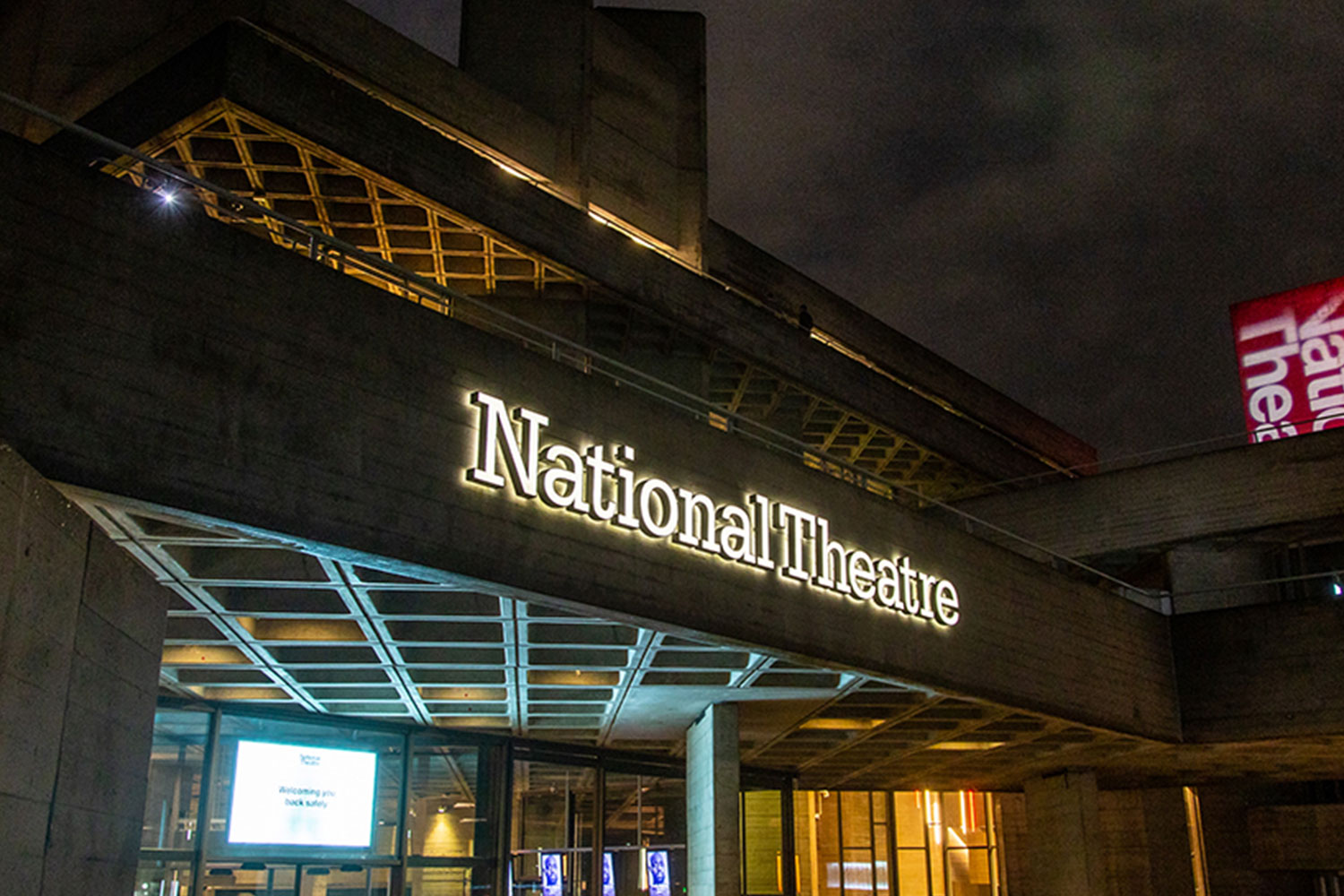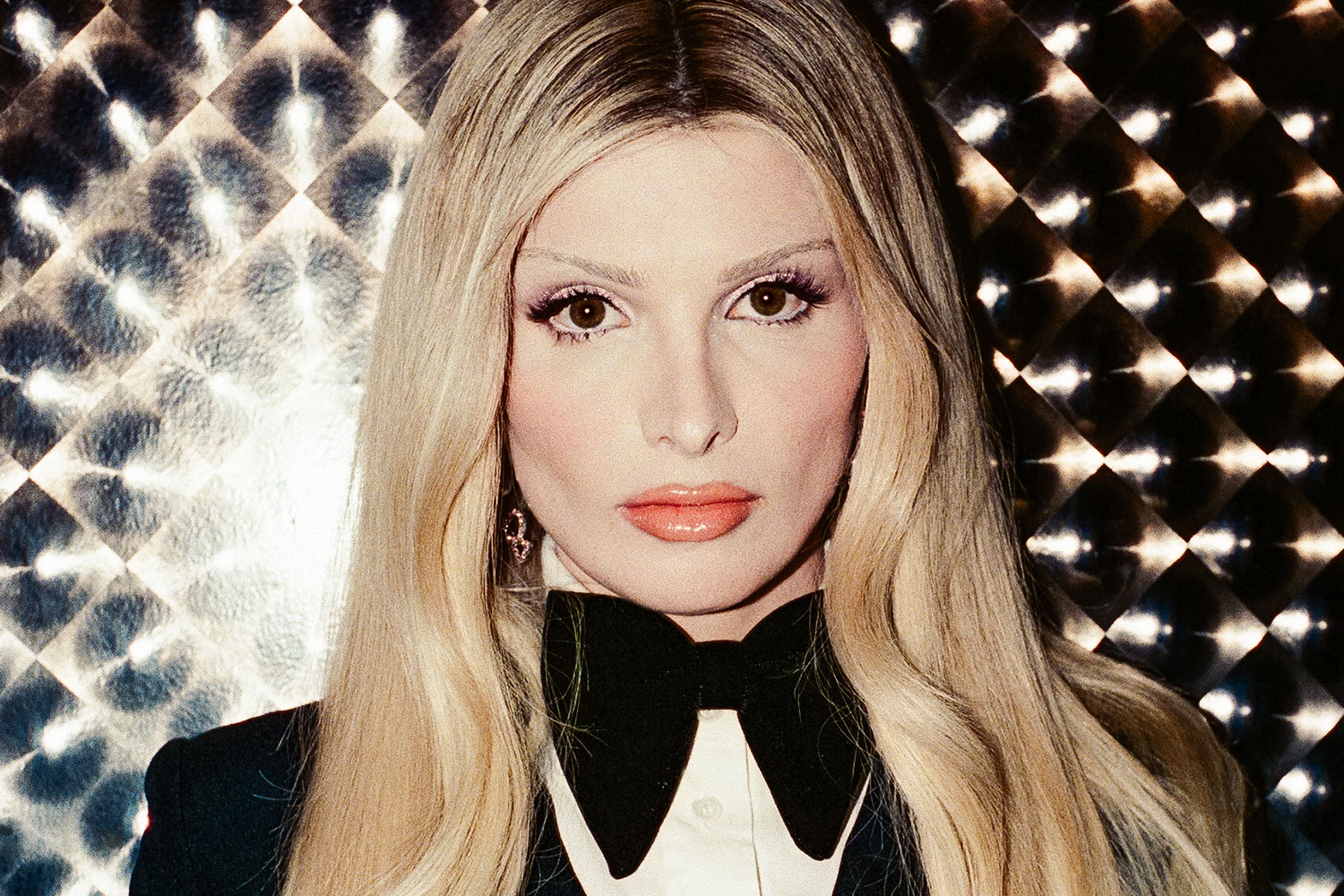Review: Hamlet (Shakespeare's Rose Theatre, York)
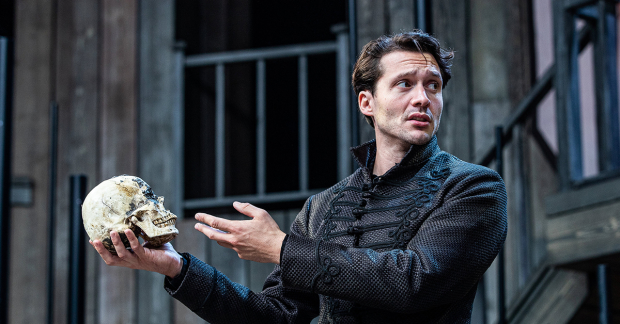
©2019 Charlotte Graham
Undoubtedly the star of Damian Cruden's production of Hamlet – stylish, entertaining, flawed – is the theatre itself. The pop-up theatre, returning to the shadow of Clifford's Tower in York for a second year, is closely modelled on Elizabethan playhouses, though – in deference to modern standards of comfort – the balance moves somewhat away from groundlings to seated customers.
The yard space is there, of course, and well used, especially by David Oakes' conversational Hamlet. How do you start "To be or not to be", for instance? Oakes starts off chatting to the groundlings (or, maybe, just himself) at the side halfway back in the yard – very effective, though addressing the later stages of the speech to an on-stage Ophelia is more contentious.
From yard to stage are three sets of steps, giving flexibility between the levels, but the most important feature is on the two sets of stairs leading to the first balcony (the second one is for musicians). On these stairs, and at the bottom, are numerous doors and niches – ideal for spying, ideal for Hamlet. Sara Perks' designs add a mesh concealing the upstage area – again a spy's paradise – but otherwise rely on smart monochrome furniture, matching the Elizabethan-based costumes: only the Players, two of whom carry over very nicely as Gravediggers, are allowed to be scruffy and colourful.
What about the production itself? At a running time of not much over three hours including interval, it's judiciously cut, a clear narrative. It builds to a fine climax with the two Hamlet-Laertes confrontations, not just because both fights are imaginatively choreographed and vigorously performed, but because pacing and grouping make for an involving finale.
Cruden gets the laughs that are always possible in Hamlet, a boon in a production that plays to summer holiday audiences, but he could be more choosy about where he gets them. Is it really a good idea for Hamlet to find a fit-looking groundling and address "What a piece of work is a man!" to him? The laugh is there, but an important piece of Hamlet's philosophy fails to register. And how far over-the-top can you go with the Player's speech about Hecuba? Opinions differ, but surely not this far!
Richard Standing, a Claudius of growing impact as his world unravels, and Gordon Kane, a conventionally fussy Polonius, give capable performances, but Rina Mahoney's sullen Gertrude and Clare Corbett's emotionally fraught Horatio are puzzling. Wreh-asha Walton and Cassie Vallance, a Tweedledum and Tweedledee of a Rosencrantz and Guildenstern, always adopt the same exaggerated pose. They do it well, but the joke wears thin.
Oakes' Hamlet has a less-is-more appeal. He seems a thoroughly decent chap, he establishes an excellent rapport with the audience, he is so much more likeable than those guys who spend all their time agonising. But does he agonise enough? Is he sufficiently mad? Whatever else, his is a totally coherent performance and his final rising to the role of hero-avenger is splendidly done.
However, the most interesting character interpretation is that of Serena Manteghi as Ophelia. Fierce, angry, dissatisfied with life from the start, she confronts Laertes, Polonius and Hamlet and doesn't show a lot of respect for Claudius. As her mind goes, she is seen wandering the castle and eavesdropping on others' scenes (those doors and niches again) and this doesn't stop with her death. It's an intriguing concept and Manteghi is a compelling actor, so it's unfortunate that her blistering attack in her mad scene brought laughter at the press performance – well, I guess, if you start them laughing…



